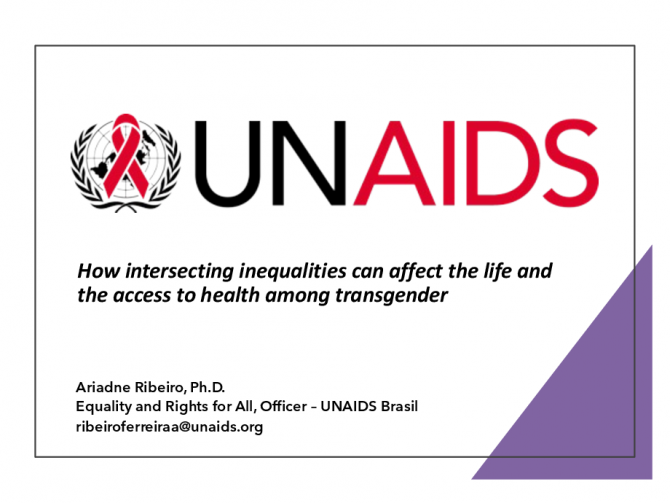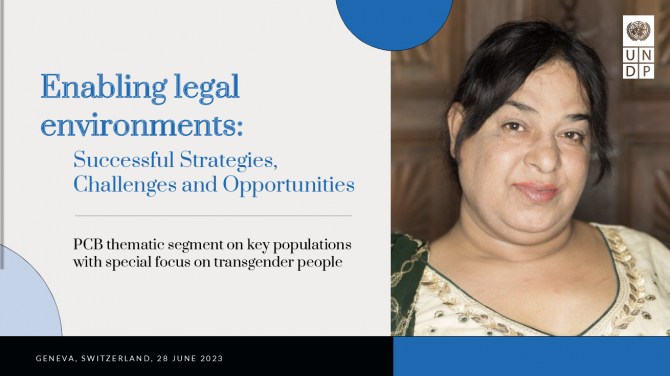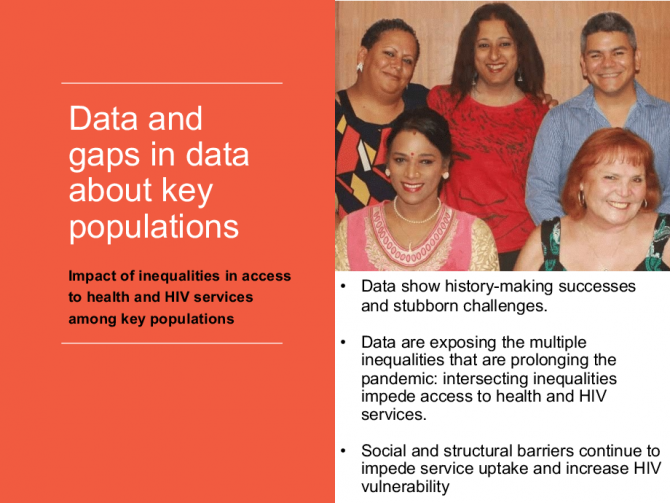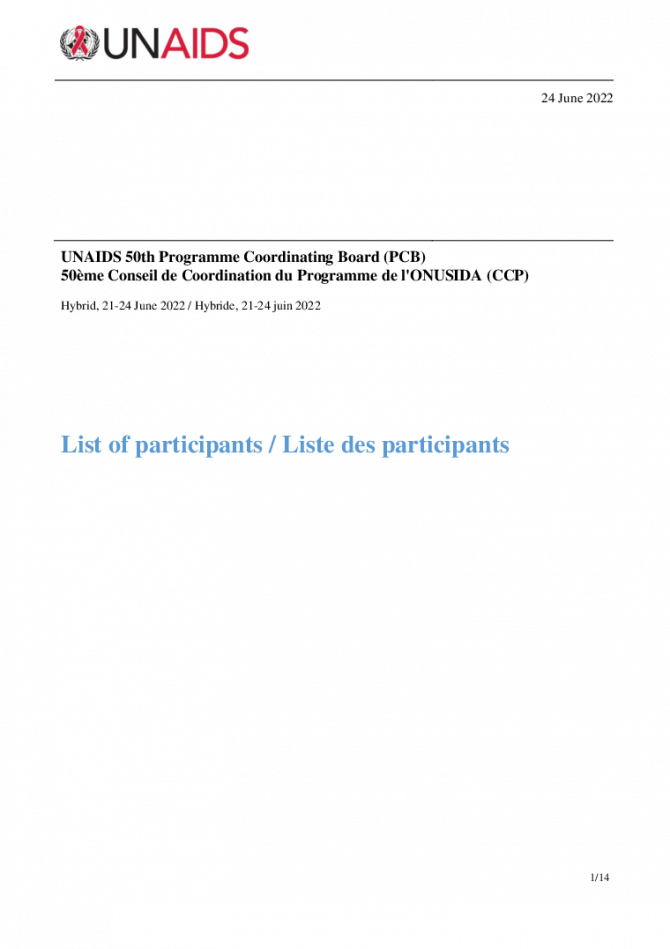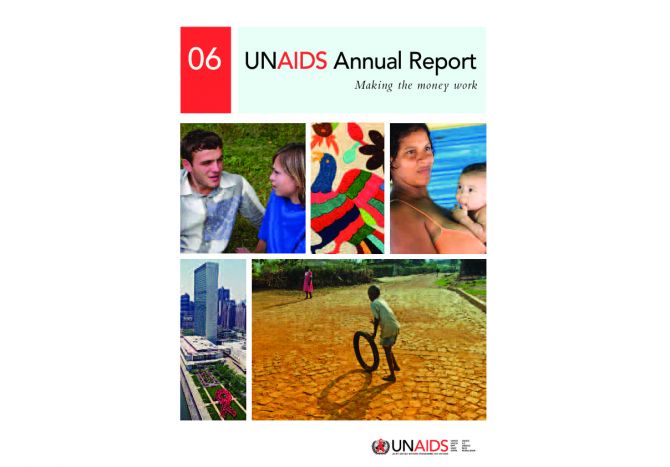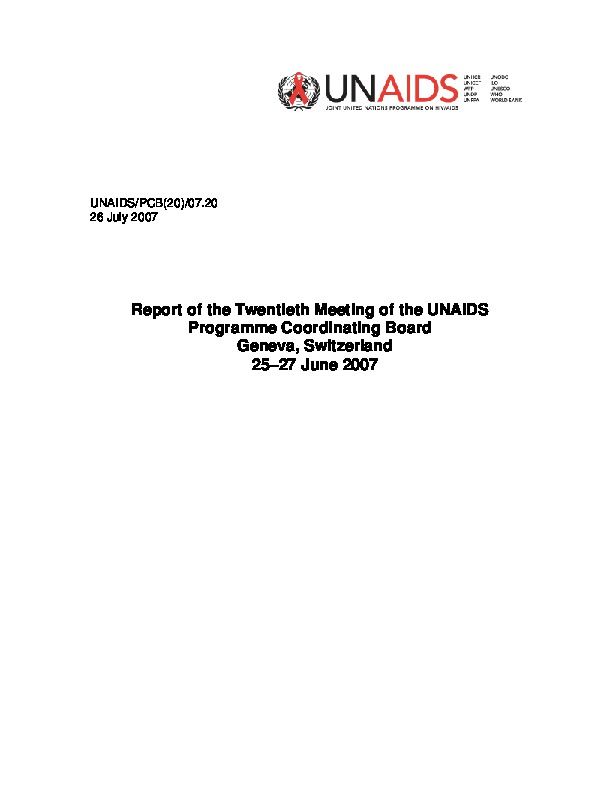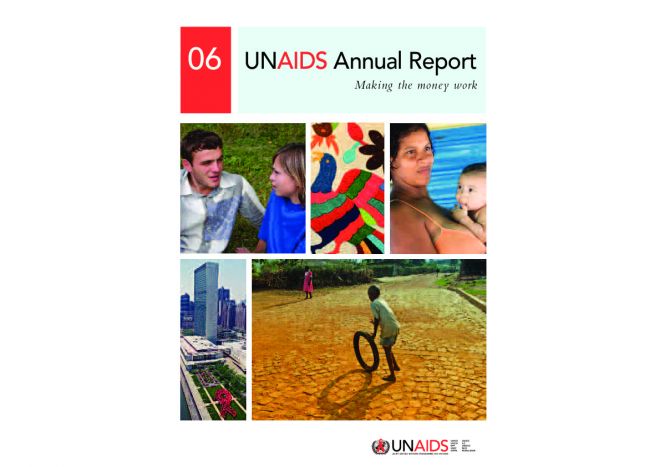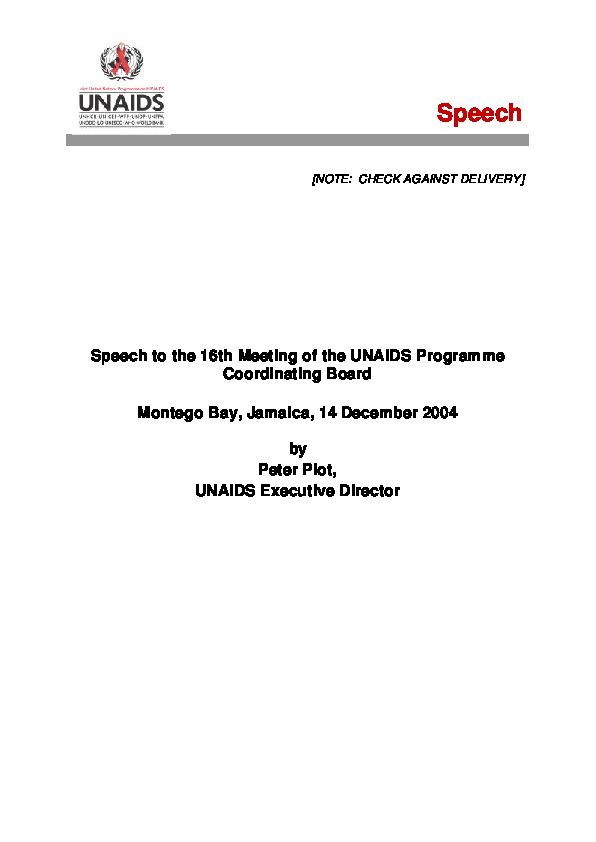Documents
Agenda item 10
28 June 2018
DISCLAIMER
UNAIDS publishes on its website all the presentations made at the meetings of its Programme Coordinating Board. Presentations by third parties are published for information only. The presentations are published as they were delivered, and do not, implied or otherwise, express or suggest endorsement, a relationship with or support by UNAIDS and its mandate and/or any of its Cosponsors, Member States and civil society. The content of the presentations has not been independently verified.
UNAIDS makes no claims, promises or guarantees about the completeness and accuracy of the contents of this presentation, and expressly disclaims any liability for errors and omissions in the content. The designations employed and the presentation of the material in this presentation do not imply the expression of any opinion whatsoever on the part of UNAIDS concerning the legal status of any country, territory, city or area or of its authorities, or concerning the delimitation of its frontiers or boundaries. Nor does the content of the presentation necessarily represent the views of Member States, civil society, the UNAIDS Secretariat or the UNAIDS Cosponsors.

Press Release
UNAIDS Board calls for ending the AIDS epidemic as a public health threat by 2030
04 July 2014 04 July 2014GENEVA, 4 July 2014—The 34th meeting of UNAIDS Programme Coordinating Board has concluded in Geneva after three days of discussions and debate. The importance of ensuring the inclusion of HIV in the post-2015 sustainable development goals, ending the AIDS epidemic by 2030 and social protection were topics high on the agenda.
During the meeting, the UNAIDS Board members recognized the value of the lessons learned from the Joint Programme’s unique approach to enhancing strategic coherence, coordination, results-based focus and country-level impact. The Board also called on UNAIDS and United Nations Member States to pursue a clear commitment in the post-2015 development agenda to ending the AIDS epidemic as a public health threat by 2030. The Board stressed that ending the AIDS epidemic would be provisionally defined as the reduction of new HIV infections, stigma and discrimination experienced by people living with HIV and key populations, and AIDS-related deaths by 90% compared to 2010 levels.
The Executive Director of UNAIDS, Michel Sidibé presented his report to the Board and encouraged Board members to develop new and unconventional ways of thinking and approaches to end the AIDS epidemic by 2030. “This is a singular opportunity to set an ambitious course that will ensure that we have the political space and resources to get the job done,” he said.
At the meeting which took place from 1 to 3 July 2014 in Geneva, Switzerland, Board members were joined for the opening session by Sir Andrew Witty, Chief Executive of GlaxoSmithKline who talked about developing new medicines and the need for customised solutions, and Mr Subhanu Saxena, Chief Executive Officer of Indian generics manufacturer Cipla, who stressed the importance of innovation and the need to increase access to generic medicines.
The meeting concluded with a full-day thematic segment on social protection. Speakers included people living with HIV and from key populations at higher risk of HIV, members of civil society, government representatives and health and development experts who talked about the urgent need to address the social and economic drivers of HIV through social protection measures including financial incentives such as cash transfers, pension schemes, housing and lower cost transport options.
Participants and observers from UN Member States, international organizations, civil society and non-governmental organizations attended the meeting, which was chaired by Australia with Zimbabwe as vice chair. The Board elected El Salvador as rapporteur for 2014.
UNAIDS Executive Director’s report to the Board, and the Board’s decisions from the meeting can be found at www.unaids.org
Documents
2006 UNAIDS annual report: making the money work
31 May 2007
The UNAIDS Annual Report looks at the work carried out by the UNAIDS Secretariat and its ten Cosponsor organizations in 2006. A truly global problem, AIDS affects every region and every country of the world, challenging health systems and undermining our capacity to reduce poverty, promote development and maintain national security. At the same time, as this annual report reveals, new opportunities are greatly enhancing our potential to respond to AIDS in the immediate and the longer term.
Documents
Report of the Twentieth Meeting of the UNAIDS Programme Coordinating Board
26 July 2007
Documents
2006 UNAIDS annual report: making the money work
31 May 2007
The UNAIDS Annual Report looks at the work carried out by the UNAIDS Secretariat and its ten Cosponsor organizations in 2006. A truly global problem, AIDS affects every region and every country of the world, challenging health systems and undermining our capacity to reduce poverty, promote development and maintain national security. At the same time, as this annual report reveals, new opportunities are greatly enhancing our potential to respond to AIDS in the immediate and the longer term.

